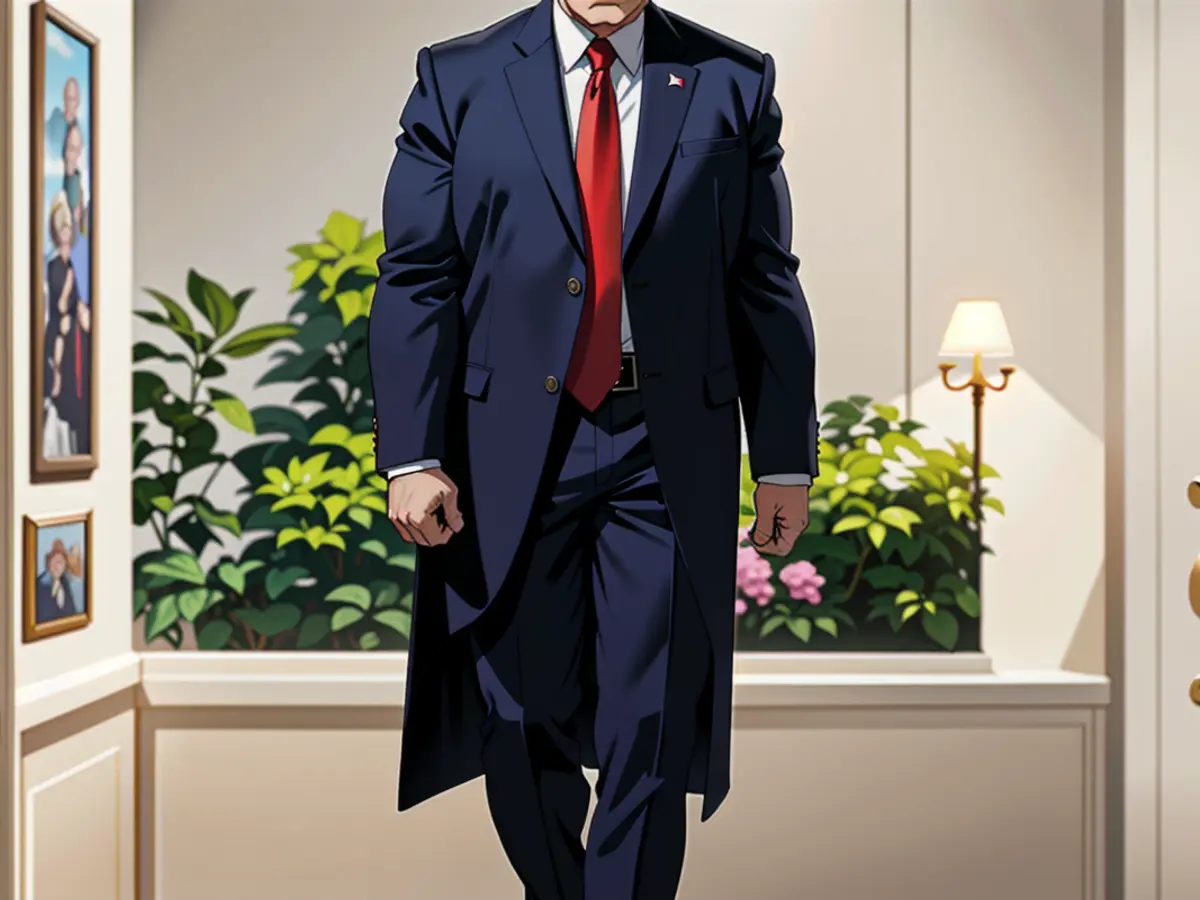- Stock market abuzz: Trump engaged in golf, applauding tariff rates
Stirring up the trade landscape, US President Donald Trump unveils a new strategy: 10% tariffs on goods from all countries. On a stormy Wednesday, Trump signed a decree implementing his tariff plan, featuring a complex system of escalating tariffs for countries with massive trade deficits, taking effect from April 9.
But, not all goods are in the crosshairs. Exemptions include items such as steel and aluminum products, cars and car parts, as well as pharmaceuticals, semiconductors, wood products, and some critical minerals. However, further tariffs on these goods may soon be announced.
Looming Consumer Price Hikes and Economy Slowdown
Dubbing the tariff announcement, "The Day of Liberation," Trump promised it would usher in the "golden age" of the USA. But his rosy predictions didn't last long, with the stock market plummeting post-announcement. Federal Reserve Chairman Jerome Powell anticipates higher inflation and slower economic growth for the US.
Tensions in global trade could trigger a severe economic downturn. Countries like China, Germany, and the European Union have already vowed to retaliate, and Trump has acknowledged a willingness to engage in talks regarding the tariffs.
- Donald Trump
- US President
- Jerome Powell
- Stock Market
- Global Trade
Breakdown of Tariff Implications
Consumer Prices
- Climb: Doubters predict consumers will face pricier imported goods, potentially straining average families' budgets. Senate Minority Leader Chuck Schumer underscores these concerns[1].
- Deferred Spending: Economists foresee consumers cutting back on foreign goods if prices soar, affecting overall spending[1].
Economic Growth
- Domestic Manufacturing Boost: Proponents believe tariffs could encourage companies to produce goods within the US, supporting domestic manufacturing[2].
- Sluggish Expansion: Conversely, free trade advocates fear reduced overall economic growth due to ensuing trade uncertainty and potential retaliation[1].
Global Economy
- Balance of Trade: Trump aims to level the playing field by addressing US trade deficits and countering unfair trade practices[2].
- Trade War Fears: Critics worry the tariffs will exacerbate global trade tensions and set off a trade war[1].
International Response
- Retaliation Probability: Countries targeted by the tariffs may respond with their own countermeasures, leading to a broader trade conflict[1].
- Global Scrutiny: The worldwide community keeps a close eye on these developments, some observing its potential impact on global trade stability while others see it as an opportunity to renegotiate trade relations with the US[2].
Though Trump's administration presents the tariffs as an lever to bolster "Made in America" products and rebalance trade imbalances, economists and international observers remain vigilant about potential economic and diplomatic ramifications.
- The US President, Donald Trump, has announced 10% tariffs on goods from all countries, which could lead to higher consumer prices and slower economic growth in the US.
- Trump's tariff plan includes a complex system of escalating tariffs for countries with massive trade deficits, which might provoke retaliation from countries like China, Germany, and the European Union, potentially triggering a trade war.
- Some countries targeted by the tariffs might respond with their own countermeasures, leading to a broader trade conflict, while the international community watches the situation closely, some observing its potential impact on global trade stability and others viewing it as an opportunity to renegotiate trade relations with the US.










